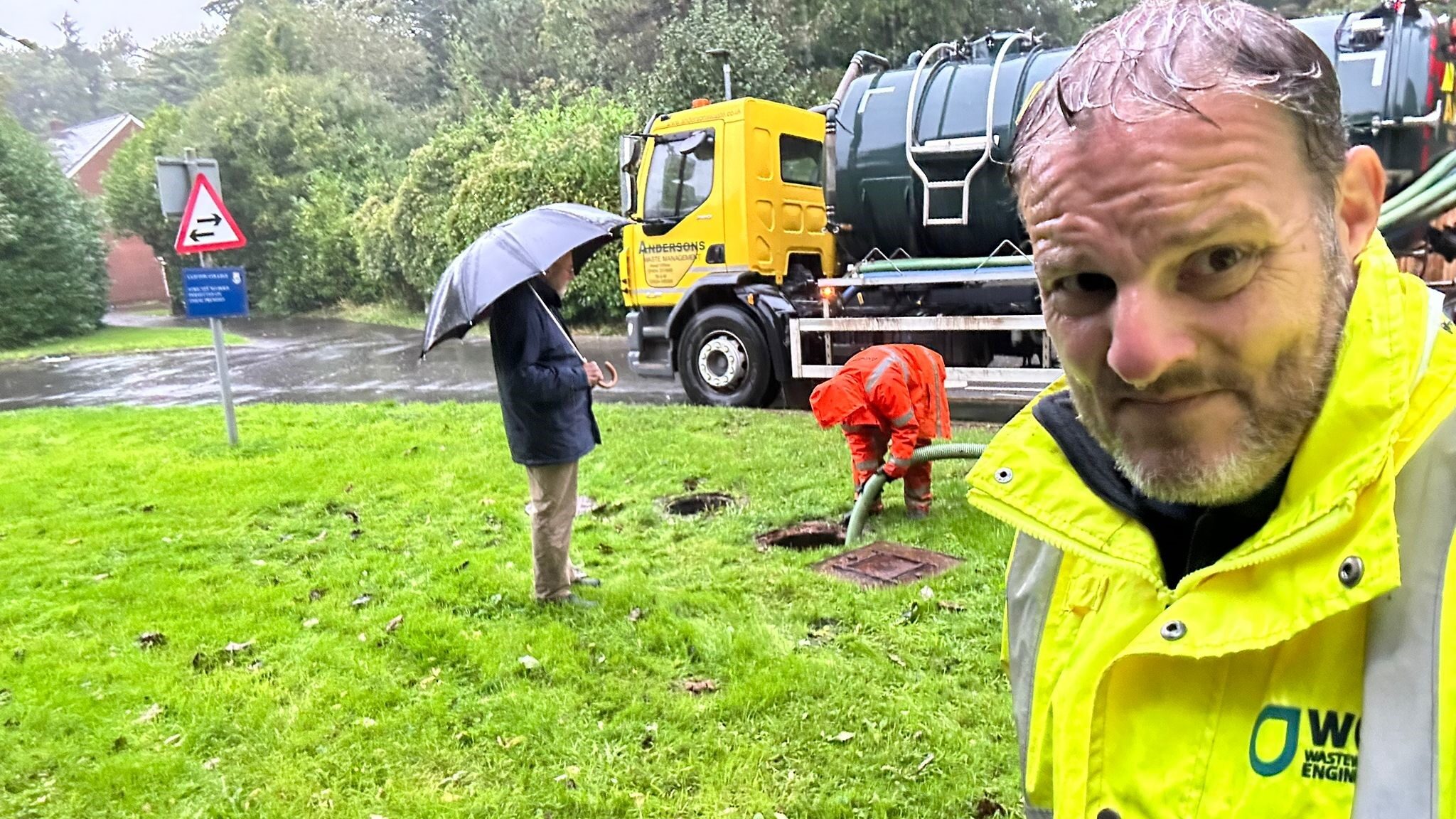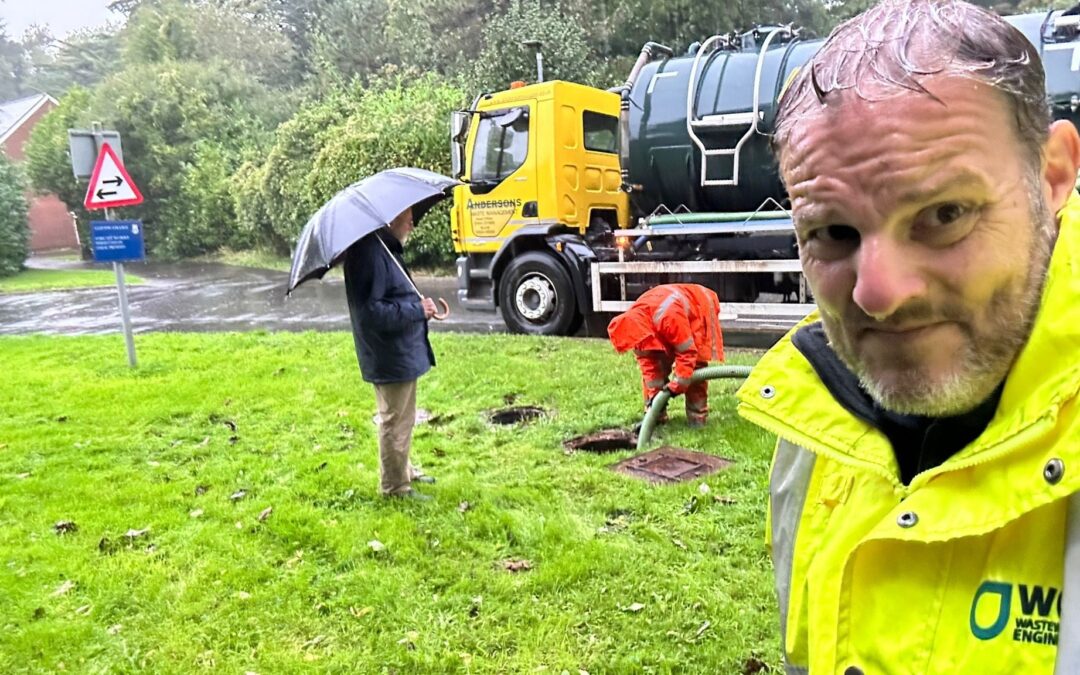After what felt like an endless stretch of glorious sunshine, the British weather is doing what it does best – turning a bit wetter! As the forecasts predict more rain this week, it’s a good moment for us at WCI to highlight how you can use this change in weather as an opportunity to think smarter about water efficiency.
While our dedicated project & service engineers are out there working hard come rain or shine to improve and maintain your private water systems, this shift from heatwave to wetter conditions offers a perfect chance to reconsider how you can manage water at home. Even with rain on the forecast, saving water isn’t just about drought periods; it’s about reducing your environmental footprint, sustainable living and potentially even lowering your utility bills year-round!

You can harness that incoming rainfall for a variety of uses around your home and garden? Here are a few practical and effective ways to embrace the wet weather:
Install Water Butts for Garden Gold
One of the simplest and most effective ways to save water is by installing water butts. These fantastic devices collect rainwater directly from your downpipes, providing you with a free, chemical-free source of water perfect for your garden. Your plants will love it, and you’ll love saving on your water meter! They are easy to install and make a significant difference over time.
Choose Plants that Love a Drier Climate
When planning your garden, think smart about your planting choices. Incorporating drought-resistant species means your garden will thrive with less supplemental watering, especially during future dry spells. This reduces your reliance on tap water and creates a more resilient landscape.
Reusing Greywater in the Garden
For those looking for more water-saving techniques, reusing ‘greywater’ is an excellent option. Greywater is wastewater from household activities like showers, baths, and hand basins, but it excludes sewage and water from kitchen sinks. Greywater can be directly applied to gardens, especially from showers and baths, as these typically contain less contamination that the soil and compost can filter out. It’s best to minimise the use of greywater from kitchens and other sources which can contain high levels of grease and chemicals.
Explore Rainwater Harvesting Systems
For a truly comprehensive and sustainable solution, a rainwater harvesting system can be installed. These systems collect and store larger quantities of rainwater, which can then be used for various non-potable purposes around your home. This includes flushing toilets, washing cars, or even for laundry. It’s an investment that can significantly reduce your mains water consumption and provide greater water independence.
At WCI, we provide essential wastewater engineering services. No matter the weather, we’re here to help you manage your wastewater effectively and explore smarter solutions for your property.
